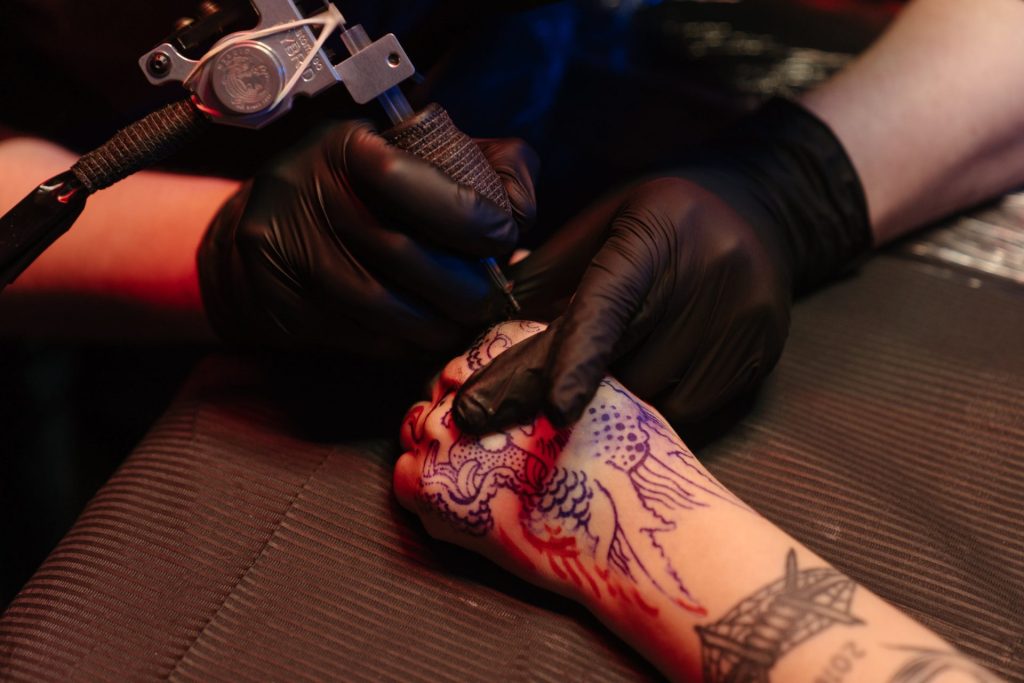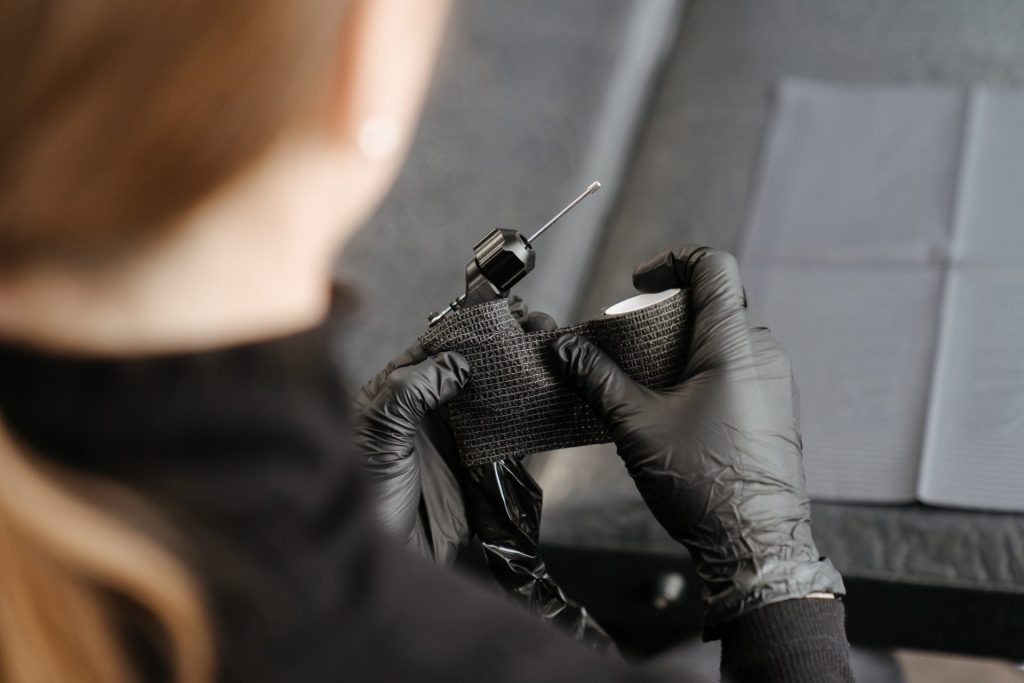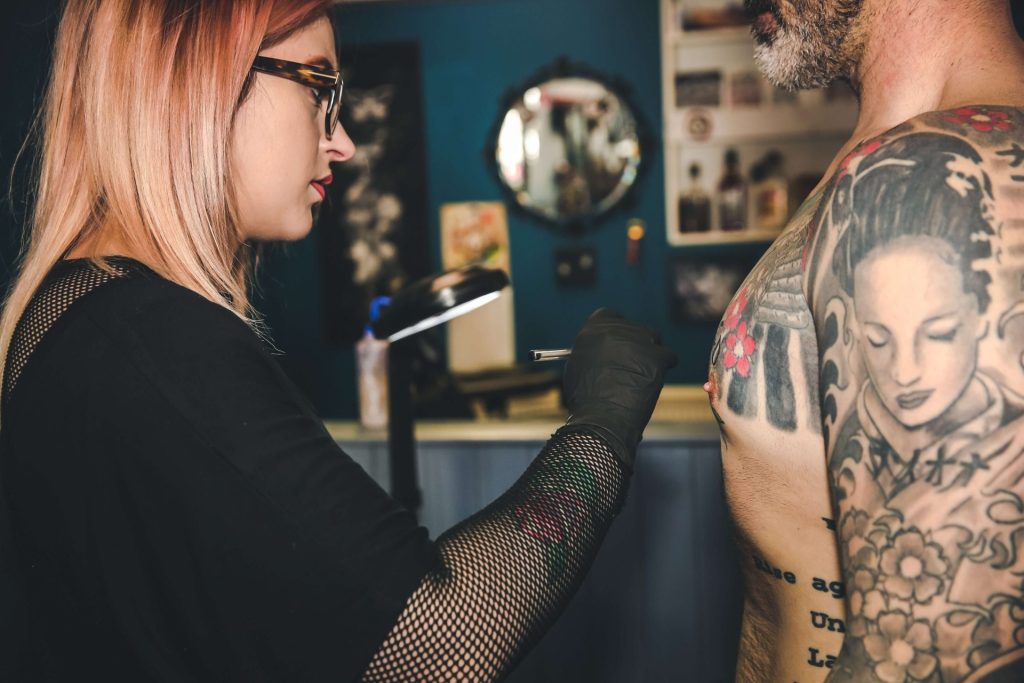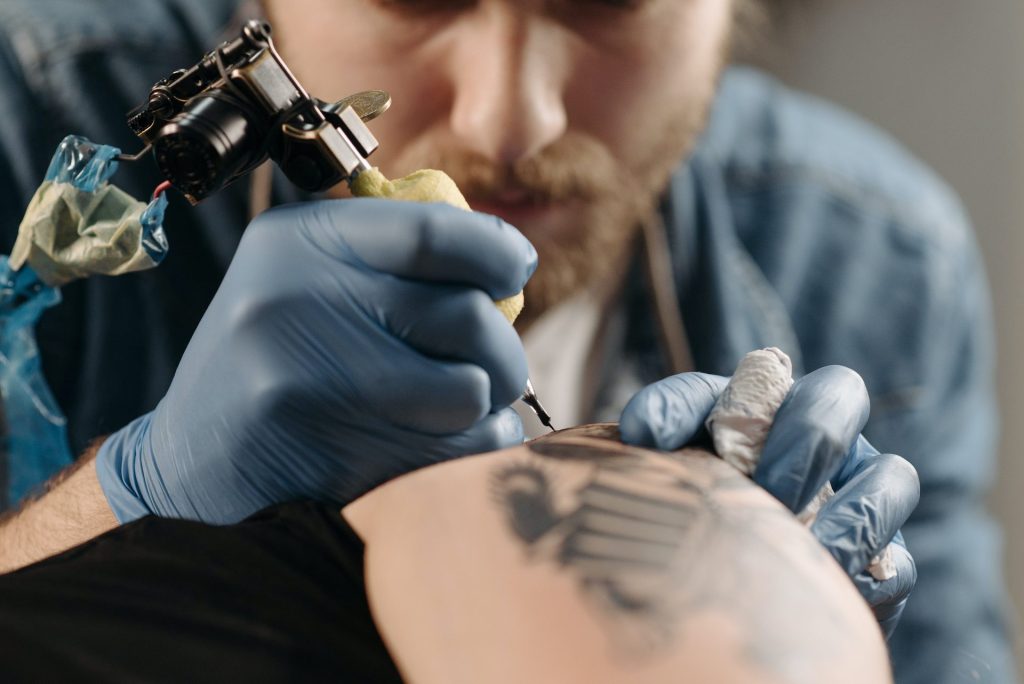Tattooing Tools
Tattooing, a form of body art and self-expression, has gained huge popularity in recent years. The demand for quality tattooing tools has increased as a result. Whether you’re a professional tattoo artist or an enthusiast looking to create your own unique designs, understanding the tools of the trade is essential. In this article, we search deep into the world of tattooing tools, exploring the equipment you need to create stunning body art. When it comes to tattooing, using the right tools is critical. Here, we’ll discuss the primary tattooing tools that every artist, whether seasoned or a beginner, should have in their store.

Tattoo Machine and Power Supplier
Tattoo machines, also known as tattoo guns, are the workhorses of the trade. They come in various types, including coil and rotary machines. These devices control the depth and speed of the needle, allowing for precise and smooth tattooing. Power supplies provide the electricity needed to run tattoo machines. They should be reliable and adjustable to ensure precise control during the tattooing process. Grips and tips are attached to the tattoo machine and provide a comfortable and secure hold for the artist. They come in various shapes and materials to suit individual preferences. Proper lighting is essential for tattoo artists to work with accuracy. Adjustable lamps and studio lighting ensure that every detail is visible during the tattooing process. While not every artist offers tattoo removal services, it’s essential to be aware of the tools and techniques involved in the removal process.

Tattooing Needles and Inks
Tattoo needles come in a variety of configurations, each designed for a specific purpose. They determine the style and texture of your tattoo. The choice of needle is crucial, as it can significantly impact the final result. Tattoo inks are the colours that bring your artwork to life. High-quality inks are essential for vibrant and long-lasting tattoos. They come in a spectrum of colours, and professional artists often blend them to create unique shades. Stencils and design tools help artists plan and execute their creations with precision. They include rulers, skin markers, and digital design software. Every tattoo artist has their personal preferences when it comes to tattooing tools. These might include specific brands of inks, needles, and other equipment that they’ve grown to trust. Exploring various tattoo artistry techniques, such as watercolor tattoos, black and gray, and color realism, can help artists develop their skills and style.

Hygiene and Sterilization Tools
Maintaining a sterile environment is crucial to prevent infections. Autoclaves, sterilization pouches, and disposable gloves are indispensable for ensuring the safety of both the artist and the client. Transfer paper allows artists to stencil their designs onto the skin before tattooing. It ensures accuracy and helps artists create intricate and detailed tattoos. Stencils and design tools help artists plan and execute their creations with precision. They include rulers, skin markers, and digital design software.

FAQ
Are tattoo machines and tattoo guns the same thing?
- Yes, tattoo machines and tattoo guns refer to the same device used for tattooing. They are sometimes called “guns” due to their appearance, but the term “machine” is more commonly used by professionals.
How can I ensure the safety of my tattoo studio?
- Ensuring safety in your tattoo studio involves regular sterilization of equipment, using disposable needles and gloves, and maintaining a clean and organized workspace.
What’s the best way to care for a new tattoo?
- Proper tattoo aftercare includes keeping the tattoo clean, applying ointment as recommended by your artist, and avoiding exposure to direct sunlight until the tattoo is fully healed.
Are there any eco-friendly tattoo inks available?
- Yes, there are eco-friendly tattoo inks made from natural, vegan, and cruelty-free ingredients. These inks are a great choice for environmentally conscious individuals.
Can anyone become a tattoo artist, or are there specific requirements?
- Becoming a tattoo artist typically involves completing an apprenticeship, gaining experience, and meeting licensing requirements. Each region may have specific regulations, so check with your local health department for details.
What should I look for in a tattoo removal specialist?
- When considering tattoo removal, look for specialists with experience, certified equipment, and a strong reputation. Consultations with multiple specialists can help you make an informed decision.

Conclusion
Tattooing tools are the heart of the art form, and understanding their purpose and use is vital for anyone interested in becoming a tattoo artist or appreciating this unique art form. From the machines that create the designs to the inks that bring them to life, each tool plays a critical role in the tattooing process. Moreover, ensuring the safety and hygiene of the studio is paramount. Remember, while the tools are essential, it’s the artist’s creativity and skill that truly make a tattoo a work of art.
